
Who Should Count as a ‘Student’ in Photo Contests?
The Sony World Photography Awards is arguably the most prestigious and largest photo contest. The 2024 edition is open to entries and some of its rules are under fire.

The Sony World Photography Awards is arguably the most prestigious and largest photo contest. The 2024 edition is open to entries and some of its rules are under fire.

This week's Scary Fast Apple event was significant in mostly expected ways. Apple debuted its new M3 series of chips, launched super-powered new MacBook Pro notebooks, and updated the iMac for the first time since 2021. However, Apple also did something unprecedented: it shot the entire event on the iPhone 15 Pro Max smartphone.
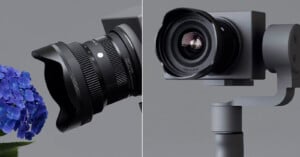
Sigma has not released a new camera since 2021 and doesn't currently have an APS-C camera, otherwise known as a crop sensor, in its lineup. In fact, it hasn't made one since the sd Quattro in 2016. That should change, and I believe it's about to.

A couple of companies have released new SSD products in the last few months and they carry one commonality: USB 3.2 2x2. They shouldn't, because all it does is overstate the performance a vast majority of users will ever see.

Between inflation and "shrinkflation," consumers are getting the short end of the stick these days. As the rich get richer, regular folks face a litany of anti-consumer practices, not the least of which are misleading food photos at restaurants.
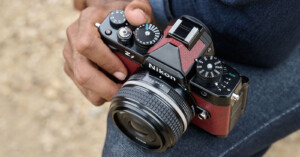
Rumors about upcoming cameras and lenses are a staple of the online photography community. Manufacturers nearly always hate them and photographers often love them. I land somewhere in the middle but tend more toward the idea that rumors, even when intriguing, can be damaging.
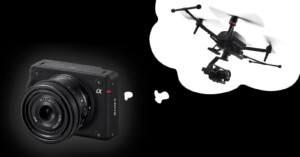
Sony's Airpeak S1 drone has thus far been a rare misstep for the respected Japanese company. Despite some (expensive) improvements to the Airpeak S1 drone, Sony's support for its flagship aerial platform, first revealed in 2021, has been significantly undercut by yesterday's reveal of the Sony ILX-LR1 full-frame camera.

It takes a lot of hard work to become a professional photographer. There are untold hours of toil to perfect the craft and lots of money spent to reach a pro level. So when you get there, how much should you be paid for a day's work?
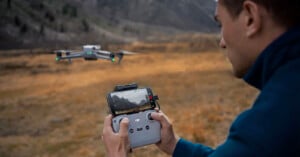
Drones are not nearly as exciting nor popular as they were just a few short years ago as a combination of laws and incremental updates has made the flying them feel like too much effort for not enough payoff.

The great photographer panic over artificial intelligence (AI) has been underway for some time, but it reached new heights this week when a photo competition disqualified a genuine photo after the judges became suspicious that iPhone photographer Suzi Dougherty was trying to trick them.

Last week, the BeBop Corporation, the owners of Madavor Media, filed a lawsuit against online rental studio platform Giggster for $25 million, alleging breach of contract and fraud over the sale of Madavor Media's photo properties, including Outdoor Photographer and Imaging Resource.

The Nikon Z8 is exciting, not only because it’s a very capable camera, but also because it represents a major paradigm shift in the camera industry.

When it rains, it pours. Recent controversies have shown that photography competitions, even large, prestigious ones, are woefully unprepared for the ongoing artificial intelligence (AI) revolution.

Last week, PetaPixel broke the news about an artist refusing a prize after his AI image won a major photo contest and since then major publications have followed up on the story, creating a firestorm.

We've had variations of this discussion a few times, but recent developments appear to keep moving the goalposts. What was once seemingly a simple question to answer is getting a lot more complicated as technology advances.

Canon has an image problem and I'm not talking about photos. The company currently has a battle on three fronts when it comes to the perception of its brand: no third-party lens options, the actions of its printer division, and the company's stance on climate change.
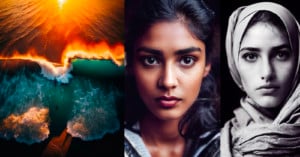
With artificial intelligence-powered "photos" winning competitions and fake portraits garnering thousands of fans, we are well past the point where we should be worried. We should be downright frightened.

Micro Four Thirds (MFT) is perhaps the most derided of all camera formats in modern digital photography. It is constantly overlooked, scoffed at, and is the subject of disdain. It really shouldn't be, and you all are way too hard on it.
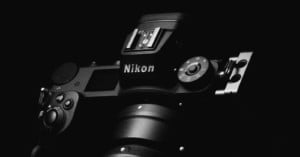
It is time to give kudos to a company that was not too long ago floundering at the bottom of the financial heap and appeared to be close to completely collapsing: Nikon.

Smartphones have gotten to the level of quality they are at not just because the sensor hardware is improving, but also because software and processing has gotten a whole lot better. So why aren't camera makers taking advantage of this technology?

While some might disagree, I argue it’s never a bad thing to add more features to cameras that make it easier for a photographer to get a great photo.
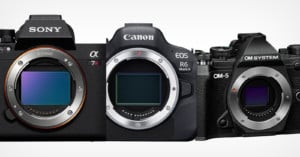
What a week. We can’t remember a time when this much stuff all dropped all at once, with new equipment from just about everyone, including Canon, Nikon, Sony, Fujifilm, and OM Digital.

Discussion on the topic of "fake news" has become exhausting. Overall, it has lost its meaning. It has gone from referring to actually made-up stories to now just being thrown around for whatever topic someone doesn’t want to hear about.

Today Microsoft announced a new Surface Studio -- the third in the lineup and first since 2018 -- and while it’s great to see the company continuing this product line, creative professionals are still waiting for the powerhouse Apple-killer we were promised in 2016.
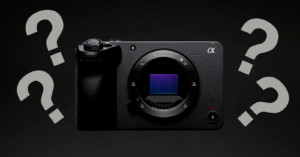
Last week, Sony announced a new camera, and looking at the marketing videos the company produced contrasted against the target user I was told it was for, I found myself quite confused.

In just the last week, I’ve seen multiple instances of camera technology that truly boggle my mind. At the same time, I know how easy it is to just scroll past them.
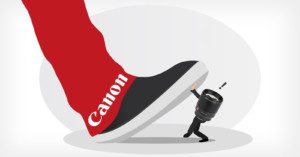
Canon has said the quiet part out loud: it doesn't want you to spend any of your money on anything other than Canon products. This is a huge mistake, and I'm pleading that the company rethink this strategy.

It’s time that we recognize how much of an impact Gen-Z is having on modern photography culture. Even millennials -- of which I am one -- need to understand that the influence of this young subset of creators is colossal and only going to grow.

We need to talk about copyright law. Now before your eyes glaze over and I lose you, I promise what I have to say is worth hearing.

The smartphone has won the compact camera battle, and that ship has well and truly sailed. The only surprising thing about this news is that it took so long for the compact camera to finally die.